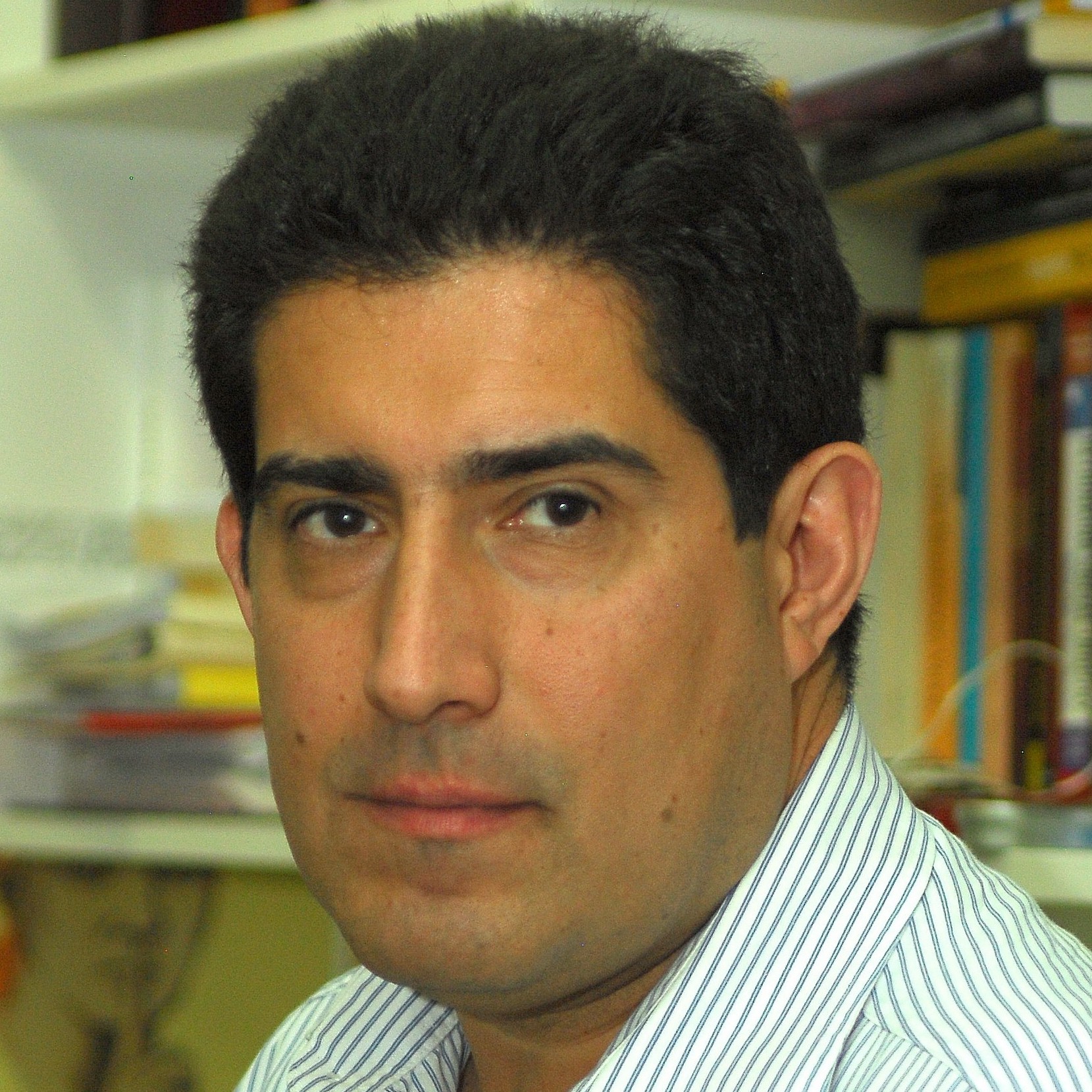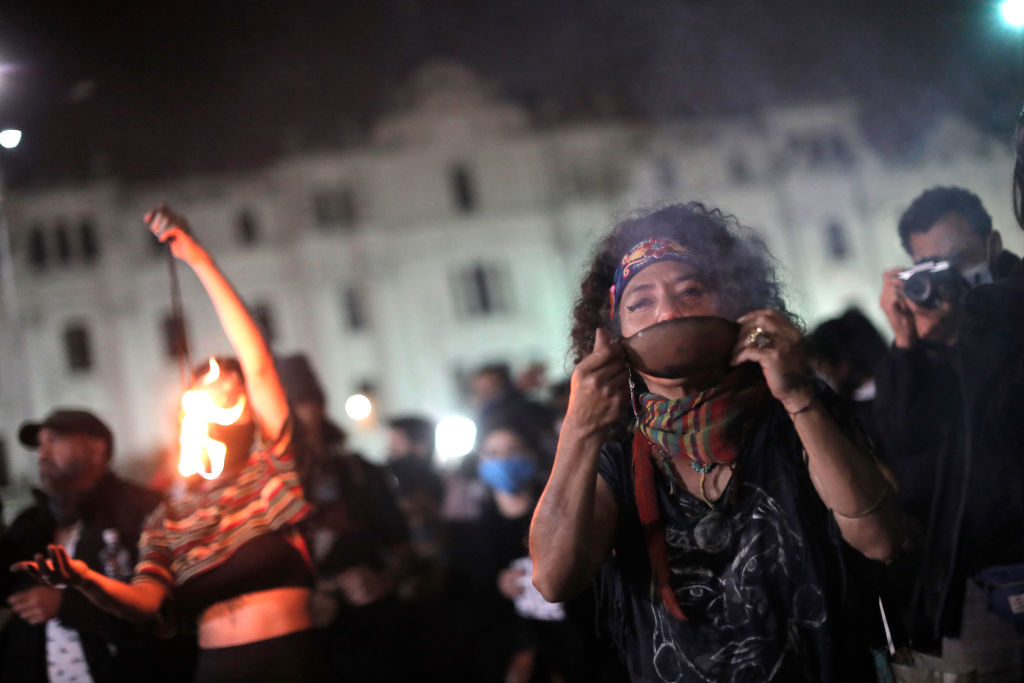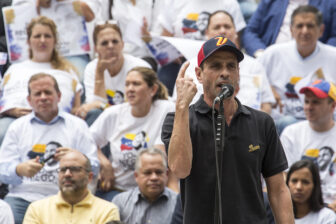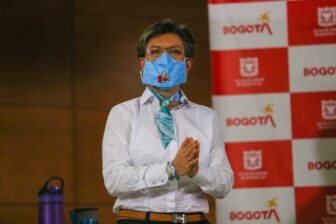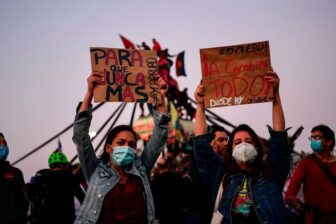Peruvians woke up Monday morning without a president, after Congress failed to agree on a successor for a leader who himself only lasted five days in power. Legislators will probably work things out and name a replacement in coming days. But Peru will continue to face the same core problem, one that is undermining democracies across Latin America: The absence of stable, institutionalized political parties. Unfortunately, this means whoever wins Peru’s upcoming presidential election in April 2021 will probably face the same challenge that has bedeviled all recent leaders: An unruly and fragmented Congress that fails miserably at everything except looking out for its own self-interest.
Prior to his resignation on Sunday amid massive protests, Manuel Merino was the third person in this presidential term (2016-2021) to hold the job. As president of the legislature, Merino automatically ascended to the presidency after he spearheaded the removal of Martín Vizcarra, the former vice-president who himself inherited the highest office in early 2018 when President Pedro Pablo Kuczynski (known as “PPK”) resigned. All this instability comes as Peru faces one of the world’s deadliest outbreaks of COVID-19, and one of its worst recessions.
The core problem is not new. As long ago as 2003, political scientists Steven Levitsky and Maxwell A. Cameron (Democracy Without Parties? Political Parties and Regime Change in Fujimori’s Peru) pointed to the absence of a political party system in Peru. When former president Alberto Fujimori resigned on November 20, 2000 (via fax from Japan, when his effort to stay for a third consecutive 5-year term unraveled), Peru embarked on a transition to democracy without well-functioning political parties. Experts on democratic theory have historically asserted that democracy cannot exist without parties. In 1991 (Democracy and the Market), Adam Przeworski defined democracy as “systems where parties lose elections.” Because representative democracy requires elections for voters to reward or punish incumbents, political parties are essential tools for accountability. Parties also serve as information shortcuts for inattentive voters, especially in countries with term-limits and where proportional representation makes it difficult for voters to even know the name of their legislators.
In the years following Fujimori’s departure, Peru defied the rules by seemingly consolidating a democracy without parties. Millions were lifted out of poverty and the middle class expanded as Peru emerged as one of the success stories of market-friendly economic growth in Latin America. Yet, structural problems remained. In every presidential election since 2001, the winning candidate belonged to a party that either did not exist or had a marginal presence in the previous election.
Peruvian political scientist Carlos Meléndez suggested that candidates tried to make up for the lack of political parties by developing negative identities – defining themselves as against fujimorismo, for example. But the core problem remained. In 2006, there were 20 presidential candidates (including two siblings, Ollanta and Ulises Humala). In 2011 and 2016, the number declined to 10. But since the parties themselves change names — others disappear, while new ones emerge — voters end up feeling like confused consumers going to the supermarket and not recognizing any of the brands for the products they normally buy. When elected president in 2016, PPK ran under a different party label than he did in 2011 and 2006. Meanwhile, it has been almost impossible to keep track of party switching among “free agent” legislators.
After replacing PPK, Vizcarra tried and failed to circumvent the dysfunction. Upon ascending to power without formal support from any party, he boldly convened a referendum on constitutional reforms. Peruvians overwhelmingly supported Vizcarra’s position. Yet, Vizcarra continued to face an unruly and fragmented congress — further polarized after the referendum introduced a one-term limit for legislators. Vizcarra then used a questionable constitutional interpretation and dissolved Congress, calling a snap election for January 2020 to elect an all-new group of legislators. Yet, because he did not attempt to form or take over a political party to capitalize on his personal popularity, the new Congress was as fragmented as the legislature Vizcarra had dissolved. In the end his relationship with the new body was even worse, leading to his resignation and then Merino’s.
Regardless of whom is ultimately named to serve out this presidential term, Peru’s next leader will still face a dysfunctional congress. With fluid allegiances, little experience in drafting laws and selfish demands, the legislature is like a Tower of Babel, with people talking past each other unable to understand or produce coherent legislation. The worst news, though, is that there is no reason to believe that the next Congress, to be elected on April 11, 2021, will be any different. More than 10 people have already credibly announced that they are running for the presidency. A larger number of parties will have candidates for the 130-seat Congress. Most likely, no party will secure a majority and party switching among elected legislators will be as common as it has been in the past 20 years.
Without a well-functioning institutionalized party system, Peruvian democracy will remain trapped in instability and scandals. Self-serving politicians who regularly switch parties will continue to undermine the trust Peruvians place in democratic institutions. The lessons from the crisis in Peru could not be more important for many other Latin American democracies where party systems are also weak and where many in civil society favor the emergence of independents as an alternative to discredited politicians from established parties. The power vacuum crisis will turn into a permanent condition as the political elite seems incapable of finding a way out that can be sustainable over time. Not having a president is an unquestionably big problem for a country. But lacking a well-functioning party system is a much bigger problem in the long run.
There is no easy way out of this conundrum, but some reforms are possible. There are ways to strengthen political parties while making them more responsive and accountable. Political parties should be treated like banks in well-designed banking systems, with high barriers to entry, incentives for fierce competition and strong oversight powers to ensure they do not deviate from their mandates. Just as banks are trusted to keep people’s money, political parties are the recipients of votes, the most valuable asset people have in a democracy.
Other rules could also improve political party accountability. If countries opt for proportional representation rules for legislative elections, each district should be small and have few legislators so that voters can know the names of those they elect as their representatives. Legislators who switch parties before the end of their terms should not be allowed to run for immediate re-election. To promote citizen involvement in parties, public funding for political parties should be tied to the levels of popular participation in their internal processes and not just to the vote share parties get in elections. Internal party elections should be organized by the same electoral authority that runs national elections. Transparency requirements that exist for state institutions should also apply to political parties.
The crisis in Peru reminds us of the importance of a well-functioning party system. Peruvians—and other Latin Americans—might have good reasons to be dissatisfied with their political parties. But just as no economy can function without banks, democracies cannot function without political parties. Thus, rather than firing all professional politicians and replacing them with independents and outsiders, we should focus on building political parties. Imperfect as they may be, when properly designed, they can actually help the system work better for everyone.
—
Navia is a contributing columnist for Americas Quarterly, professor of liberal studies at NYU and professor of political science at Diego Portales University in Chile.


